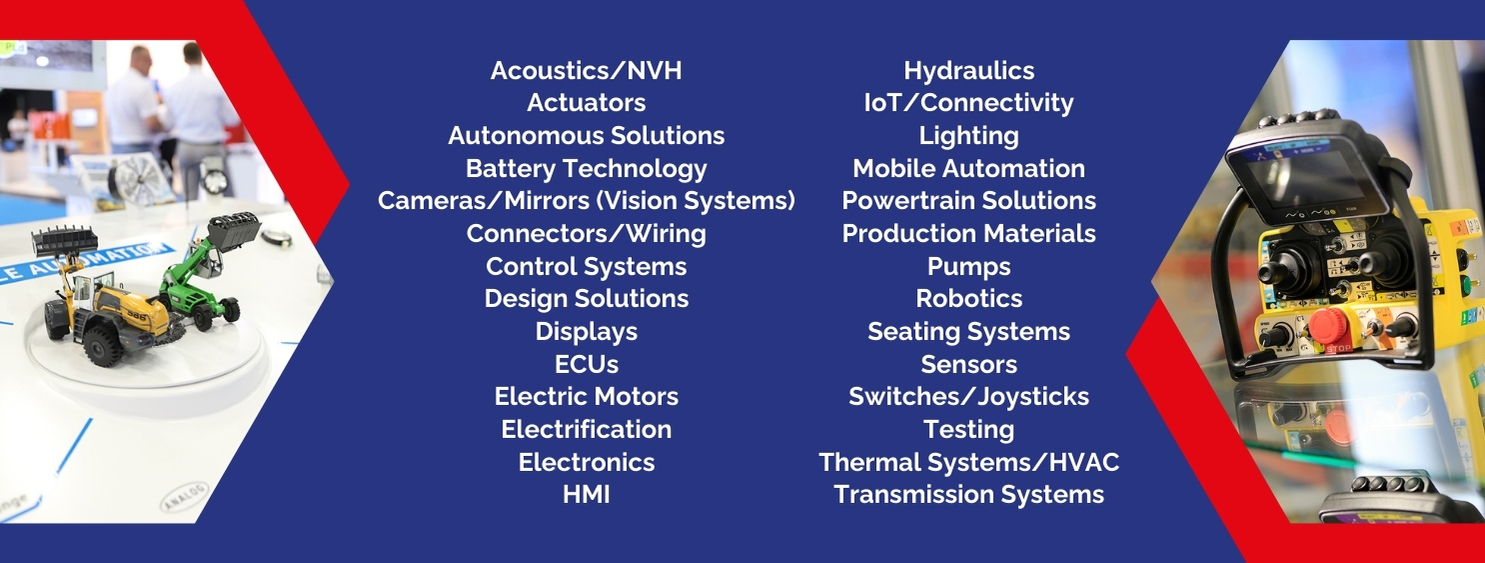What's on show

Discover the latest components, materials, systems and technologies from leading international suppliers that go into making the next generation of off-highway vehicles, including those used in construction, mining, agriculture, material handling, forklifts and forestry.
The show’s compact format featuring over 130 exhibitors offers a highly effective setting for engineers and designers from off-highway vehicle OEMs to discuss the latest technologies and future concepts.
In addition, the iVT conference, held alongside the expo, will cover key topics such as the future of off-highway vehicles, electric, hybrid, and alternative powertrain solutions, advancements in autonomous off-road vehicle technology, and more!

Wednesday, August 20
10am – 6pm
Thursday, August 21
9am – 4pm
Donald E. Stephens Convention Center
5555 N. River Road
Rosemont, IL 60018
847-692-2220